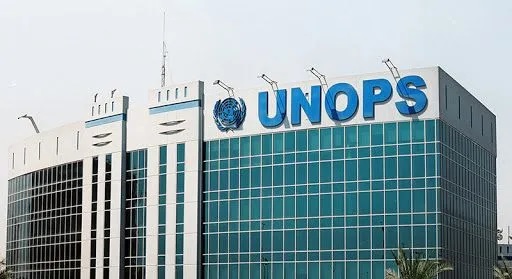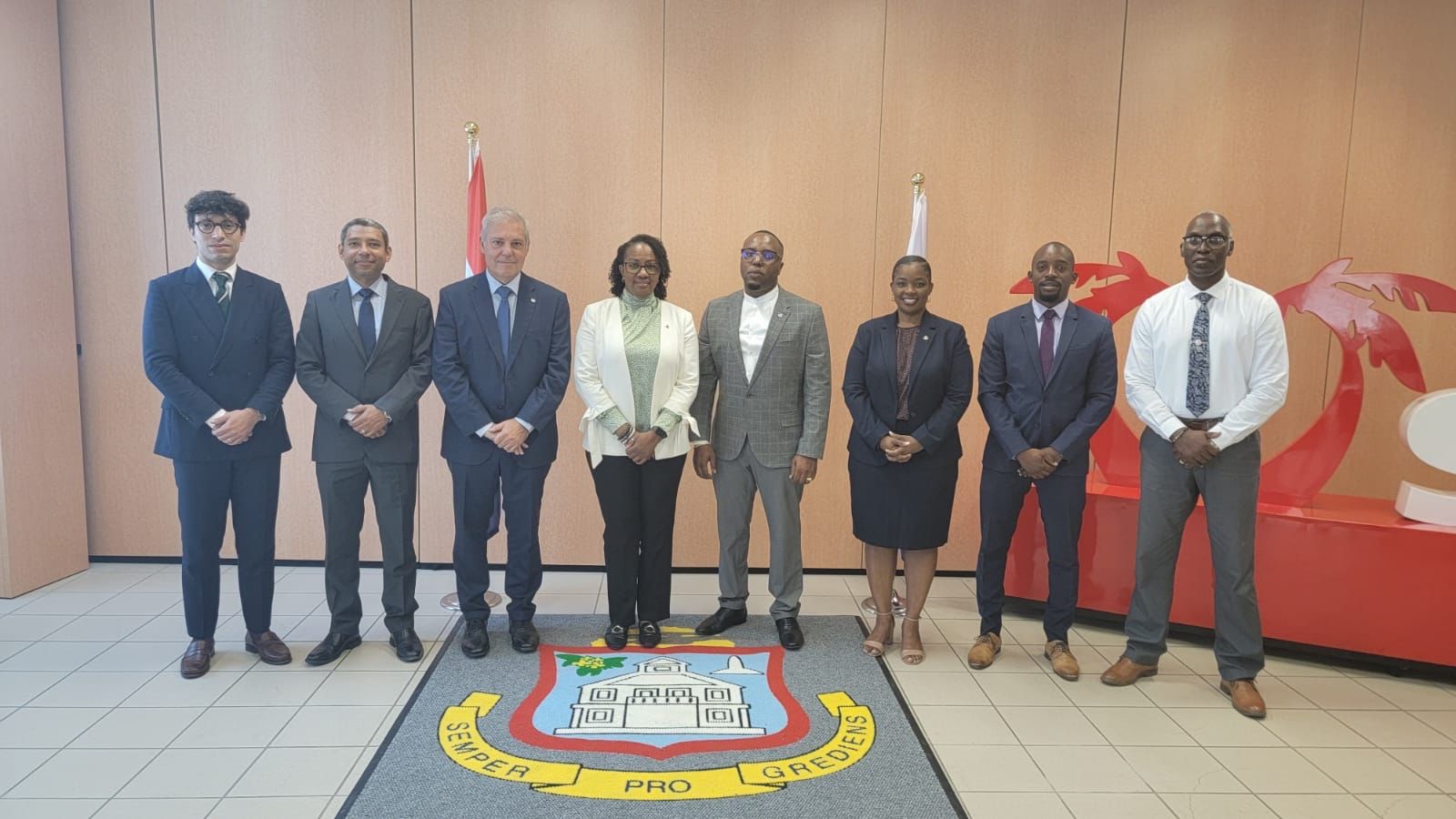Corruption-riddled UNOPS making international headlines

~ Involvement with new Point Blanche prison-project remains to be seen ~
PHILIPSBURG -- Plans for the development of a new prison in cooperation with UNOPS, the United Nations Office for Project Services, have come to a screeching halt after extensive reports about large-scale corruption and misappropriation of funds at the UN-organization.
The price tag for St. Maarten’s new prison is around $70 million. The Netherlands has reserved $30 million for the project plus an additional $10 million for measures to improve the detention regime. St. Maarten will have to cover the remaining costs for the prison-construction: $40 million.
The Progress Committee already expressed its concerns about the cooperation with UNOPS in its 43rd report that covers the fourth quarter of 2021.
“St. Maarten is already two years talking with UNOPS about their role in the execution of the detention plan and the construction of the new prison,” the report states. “But up to now nobody of that organization has visited St. Maarten to assess the local situation or to speak about their role in this process.”(*)
The Committee advised St. Maarten to continue negotiations with UNOPS and to start thinking at the same time about an alternative. The concerns expressed by the Progress Committee are however small potatoes compared to what has since come to light about UNOPS. In a nutshell: $22 million has disappeared and the Netherlands is withholding its funding for the time being.
Last Friday, NRC.nl published an article that describes the problems at UNOPS in great detail.
On January 2, 2021, a UN whistleblower informed the anti-corruption task force at the Dutch Ministry of Foreign Affairs that tens of millions of dollars had disappeared at the Water Supply and Sanitation Collaborative Council, a small organization that resorts under UNOPS. Its main task was, believe it or not, to promote hygiene and the use of toilets in developing countries.
The Netherlands supported these initiatives with tens of millions of dollars. The whistleblower informed the anti-corruption task force in The Hague that the Council hardly built any latrines and that it worked inefficiently. He further mentioned favoritism, unlawful payments, fraud with tenders and wasteful spending.
He also complained about this at UNOPS but that initiative went nowhere. He described UNOPS as “a closed club that spends public funds without checking whether it ends up with the poorest people and that it is run by well-earning managers who protect each other.”
The complaints about the goings-on at the Water Supply and Sanitation Collaborative Council are not unique, nrc.nl writes. At UNOPS tens of millions of dollars have disappeared.
That’s painful for the Netherlands, because since January 1, 2022, it chairs the supervisory board of UNOPS.
Back in 2015 all this was unknown to the Netherlands. The government even announced its ambition to provide at least thirty million people with clean drinking water and another fifty million with access to toilets, tap water and sewage systems.
An alarming article in the New York Times changed the perspective dramatically. The Times reacted with its publication to information published by a former London-based top civil servant, Mukesh Kapila who claimed that $22 million had mysteriously disappeared from UNOPS.
The Times figured out what happened to that money. In 2015, UNOPS-director Grete Faremo donated $3 million to Daisy Kendrick, daughter of a British businessman for her NGO We Are The Oceans. In 2018 UNOPS extended $58.8 million in loans to three companies for the construction of sustainable houses in Ghana and Pakistan and for investments in windmills in Mexico. All these companies were linked to Daisy’s father Kendrick. When the companies started losing money, he used the UN-loans to cover the debts. “This way $22 million went missing, while zero houses were constructed,” nrc.nl observes.
A few hours after the Times published its article, UNOPS-director Faremo stepped down.
 The article did not go unnoticed in Philipsburg either. Justice Minister Anna Richardson (see photo) wrote a letter to State Secretary Alexandra van Huffelen (Kingdom Relations) asking about its impact on the development of the new prison.
The article did not go unnoticed in Philipsburg either. Justice Minister Anna Richardson (see photo) wrote a letter to State Secretary Alexandra van Huffelen (Kingdom Relations) asking about its impact on the development of the new prison.
Related article: Minister Richardson writes State Secretary Van Huffelen to express concerns about reports of misappropriation of funds at UNOPS Investment fund
The Hague also reacted by freezing all payments to UNOPS and by not entering into new contracts with this UN-organization.
The question is now how St. Maarten ought to continue with its prison-project. The Progress Committee already suggested last year working with the Rijksvastgoedbedrijf, the company that manages real estate owned by the Dutch government. It was also involved in the construction of the prison in Bonaire.
The government could be tempted to put the project in the hands of a local construction company, though some will question whether that is a good idea: corruption with construction projects is almost a given within the local context. Working with UNOPS does not seem to be a lot better either, so it looks like the government will be forced to choose for the lesser of two evils.
(*) Publisher’s note: In the meantime, a UNOPS delegation has visited the island of St. Maarten in May 2022. The reports of the Progress Committee are always made public months later. Therefore, by the time the media gets to review the reports and publish about the contents of these reports, some of the information contained in these reports is usually outdated. We ask our readers to take note of this.

Photo caption: UNOPS dignitaries seen here in a May 2022 photo with members of the Council of Ministers of St. Maarten, including Minister of Justice Anna Richardson and Prison Director, Steven Carty (far right), during a long awaited working visit of UNOPS.
###
Related links:
43rd report Progress Committee St. Maarten
Blogpost Something rotten in Denmark
Swiss documentary about UNOPS malversations
Article in the New York Times about corruption at UNOPS
Article published on nrc.nl about UNOPS
LOGIN TO READ MORE... THIS IS A PREMIUM ARTICLE. YOU NEED AT LEAST YEARLY SUBSCRIPTION TO ACCESS THIS ARTICLE.
...
Some articles or portions of articles are restricted exclusively for our registered members and paying subscribers. Please login here to read the rest of this article. If you do not already have a paid subscription, you will need to register here and pay for a subscription first in order to gain access to our website to read articles or contents that are restricted to paid subscribers. You need to buy at least a Day subscription for 75ct to gain access. Or log in first if you are already a registered paying subscriber to this website. Click here to register and support our work with a paid subscription.


























